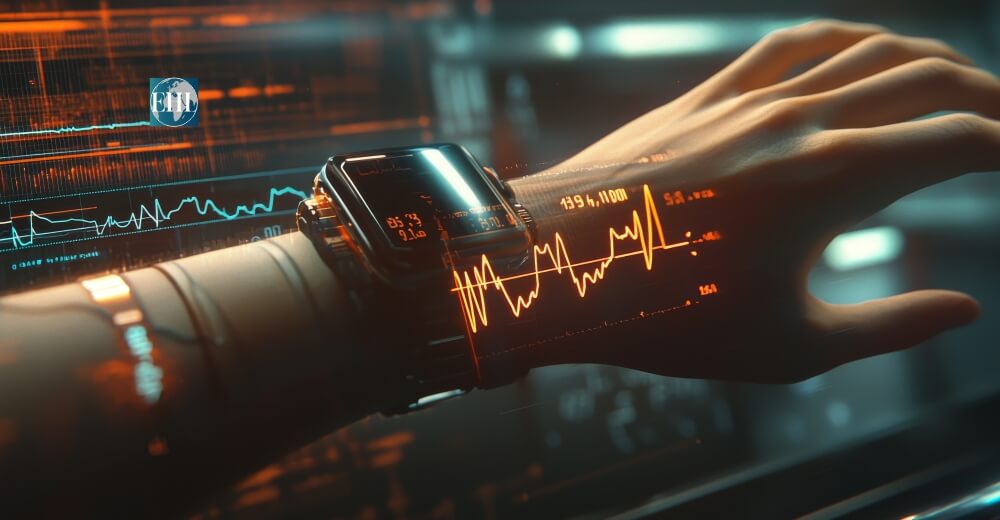Wearable Health Tech
Wearable health technology is relatively new in the recent past since it permits one to track health and wellness in existence. However, it is becoming popular in Greece since most modern healthcare facilities in the country have adopted new technologies to enhance the handling of patients. While COVID 19 is pushing tele health and remote patient monitoring forward in the wake of the global health crisis, the healthcare in Greece is quickly entering the wearable devices sector.
This article aims at comparing the effectiveness of wearable health technology in wellness monitoring in Greek healthcare organizations and their advantages, disadvantages, and prospect in the future.
Rise of Wearable Health Technology
Wearable health technology comprises a number of wearable technologies. They are; Smart watches and fitness trackers, and other general medical related personal health care devices which monitor various parameters of health. All these devices are becoming popular with their high access rate especially for chronic diseases. There is trends of growing elderly population and increasing health care costs in Greece. Wearing devices might also offer an optimistic approach to this problem.
Advantages of Wearable Health Technology
- Continuous Monitoring: Wearable health tech helps in the constant monitoring of signs like heart rate, blood pressure, and oxygen levels. The above capability can help one to note any signs of the health problems before they advance to the next level thus facilitating early treatment.
- Patient Empowerment: Live data from wearables put the patient at the center of their own care. People can monitor such aspects as their movement, sleep, and other aspects, which helps raise awareness as well as the patients’ health status.
- Improved telehealth services: Wearable technology and telehealth have the potential to connect a health provider with a patient from anywhere around the globe. This will benefit patients who live in rural areas of Greece where access to healthcare facilities is not possible.
- Data-Driven Insights: Smart clothing is combined with electronic devices that gather information, which can be used to recognize health tendencies. Such data can help deliver the rationale for the concept of ‘precision medicine,’ which aims at designing therapies based on the patient’s characteristics.
Integration into the Greek Healthcare System
Greek Healthcare System: Greek healthcare system has both public and private sectors and is slowly adapting to wearable tech integration into its system. Several initiatives are emerging, all of which emphasize better patient care and efficiency.
- Government Initiatives: The Greek government has recognized the importance of digital health technologies and has implemented policies to promote their integration. Programs aimed at funding research and development in health tech are encouraging start-ups and established companies to innovate in this space.
- Teamwork with Technology Companies: There is a great deal of partnership between Greek health care providers and technology companies in developing and implementing wearable technologies. For instance, hospitals in collaboration with the tech firms create customized health monitoring solutions for different patients.
- Educational Programs: To integrate wearable health technology, educational programs are being designed to train the healthcare professionals. It is very important to know how to read data and utilize technology for maximum patient care.
Challenges Ahead
Despite these developments, there are still several challenges that need to be overcome before wearable health technology can be more widely adopted in Greece.
- Data Privacy: The collection of personal health data by wearable devices raises significant privacy concerns. Therefore, it is very important to ensure that user data is protected and used ethically in order to maintain patient trust.
- Access to Technology: Even though wearable devices are becoming increasingly affordable, it may not be available to all population segments. The need to address the disparities in technology access, especially for the elderly and underserved communities, is crucial for fair health monitoring.
- Integration into Current Systems: Integrating data from wearable health into an existing healthcare management system can prove to be arduous. Healthcare providers require infrastructure and education to leverage wearables properly.
- Legal and Regulatory Aspects: This is still developing in terms of wearable health technology. Guidelines and regulations are much needed in clinics for the proper and safe use of wearables.
Looking Ahead
Future prospects of wearable health technology in Greece appear promising, following continuous evolution and higher acceptance rates among patients and healthcare providers. Some trends that will define wearable health technology in the future are its advancement in:
- AI and Machine Learning: Artificial intelligence coupled with wearables will lead to enhanced capabilities about data analysis, which will eventually help in predictive analytics and more personalized health recommendations.
- Mental Health will also come under increased emphasis with wearable technologies which are emerging to monitor the parameters of mental health comprising stress levels and emotional well-being, to expand the focus of wellness monitoring beyond physical health.
- Personalized Healthcare: As wearable technology grows, personalized healthcare plans that rely on individual data will become far more popular, bringing about more tailored treatments and outcomes.
- Expanding telemedicine: It is due to telemedicine that it, supported by wearable tech, expands its area for healthcare provision by ensuring greater access to timely services regardless of one’s location.
Conclusion
Wearable health technology in Greece: Innovation in health industry, the opportunity to have possibilities in the health monitoring and patients’ care system. Even with the challenges remaining, the continuous health monitoring benefits, data-driven insights, and the empowerment of patients contribute to a healthy positive shift in the healthcare practice. Greece has great potential in adopting this technology that will not only improve the individual’s health outcome but also transform its health system entirely. The journey has just begun, and the future of wellness monitoring in Greece is very promising.









